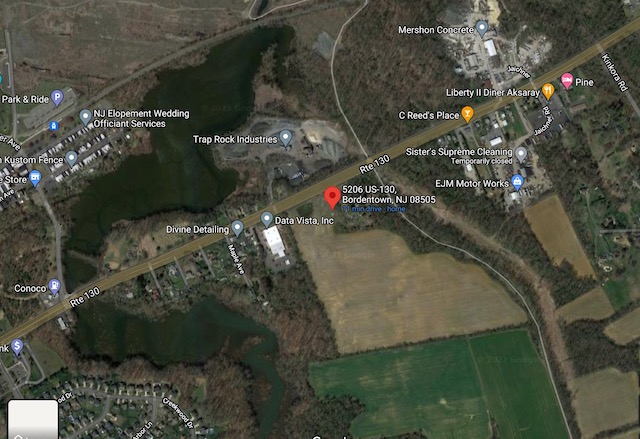Corporate Power And Market Forces Must Not Be Allowed To Determine Our Future
Warehouse Wars – Part 72
NJ Spotlight reporter Jon Hurdle wrote another awful warehouse story today, by far the absolute worst in his otherwise increasingly poor series of stories on the warehouse development issue.
There are so many aspects of this warehouse disaster the Mr. Hurdle (and his editors at NJ Spotlight) simply refuse to cover.
Instead, today he wrote a piece that belongs in the Wall Street Journal. Maybe that’s who he’s auditioning for. Jobs are becoming scarce in mainstream journalism. Hurdle writes as if corporate power and market forces, i.e. supply and demand and real estate prices, should govern growth and determine land use, without even mentioning the role of government planning and regulation and government’s legal duty to protect the natural environment and the broader public interest.
For months, I’ve written Hurdle numerous and increasing critical emails – backed up by links to the government documents – strongly urging him to abandon his Neoliberal framework and reliance on corporate development cheerleading sources like NJ Future and refocus his reporting on vitally important issues, such as:
- failure of the toothless NJ State Development and Redevelopment Plan (State Plan) [See Update below]
- the historic failure of DEP to integrate the NJ State Plan into DEP planning, regulation, and permit programs (see Gov. Florio’s Executive Order #114 (1994).
- the loss of prime farmland and forests and ways to preserve what’s left by following NJ’s regional planning traditions
- gaps and loopholes in DEP land use and water quality planning and permitting programs
- exploration of the role of NJ’s regional planning entities: Highlands, Pinelands, Delaware River Basin Commission
- the flaws and legal myths of “home rule”
- the climate implications of warehouse developments
- the social effects of warehouse developments, including labor exploitation and impacts on community character
- local abuse of NJ redevelopment law to promote warehouse development
- political games being played by NJ Democrats to create the false appearance of opposition to warehouse development
- corporate power and “regulatory capture” at DEP
These stories have one thing in common: they all threaten powerful economic, corporate and political interest – as well as the elite Foundations who increasingly exert influence behind the scenes and control not only environmental groups, but media like NJ Spotlight.
He won’t write about any of these important stories or even respond to my emails. Instead, he continues to rely on NJ Future as his “expert” source and frames his stories on economic issues or limits the scope of his coverage to individual site specific challenges (i.e. lawsuits).
I can only conclude that he is not an honest journalist – he’s either a coward or a hack, or both.
I’ve reached the same conclusion with respect to NJ Spotlight, – “where [some safe] issues matter” – an outlet who has abandoned any semblance of critical coverage or any focus whatsoever on DEP or planning or regulatory issues. The influence of donors has become transparent.
For example, NJ Spotlight has plenty of space to cover “market force” corporate oriented stories, like the drumbeat about so called “subsidies” to and high cost of renewable power, while virtually never mentioning the pervasive influence of corporate and Wall Street power, or the huge subsidies to fossil fuels, or the costs of the climate emergency (I’m no fan of CBA & ROI methods, but costs are only relevant in relation to benefits).
The fundamental issue – and this is not limited to warehouses – is a democratic policy choice:
whether corporate power and market forces will be allowed to continue to determine our collective future; or whether democratic institutions and planning and regulatory controls will govern.
Chris Hedges is perhaps America’s best writer on these topics, but the essential conflict between private corporate power and market forces versus democratic planning and regulation goes back to the beginning of capitalism. Hedges:
Capitalism, Karl Marx wrote, is “a machine for demolishing limits.” There is no internal sense of proportion or scale. Once all external impediments are lifted, global capitalism ruthlessly commodifies human beings and the natural world to extract profit until exhaustion or collapse.
The best single work I’ve read long predates Hedges. My favorite historical book that gets these issues of political economy right is “The Great Transformation – The Political And Economic Origins Of Our Time” (1944) by Karl Polanyi, who framed the issue:
Our thesis is that the idea of a self-adjusting market implied a stark Utopia. Such an institution could not exist for any length of time with-out annihilating the human and natural substance of society; it would have physically destroyed man and transformed his surroundings into a wilderness. Inevitably, society took measures to protect itself, but whatever measures it took impaired the self-regulation of the market, disorganized industrial life, and thus endangered society in yet another way It was this dilemma which forced the development of the market system into a definite groove and finally disrupted the social organization based upon it.
There it is.
Polanyi destroyed the myth of the “self-regulating market” (see Chapter 6).
He exposed how reliance on the “self-regulating market” destroyed man and society (Chapter 14):
To separate labor from other activities of life and to subject it to the laws of the market was to annihilate all organic forms of existence and to replace them by a different type of organization, an atomistic and individualistic one.
Such a scheme of destruction was best served by the application of the principle of freedom of contract. In practice this meant that the noncontractual organizations of kinship, neighborhood, profession, and creed were to be liquidated since they claimed the allegiance of the individual and thus restrained his freedom. To represent this principle as one of noninterference, as economic liberals were wont to do, was merely the expression of an ingrained prejudice in favor of a definite kind of interference, namely, such as would destroy noncontractual relations between individuals and prevent their spontaneous reformation.
He also exposed how markets destroyed nature (Chapter 15):
What we call land is an element of nature inextricably interwoven with man’s institutions. To isolate it and form a market for it was perhaps the weirdest of all the undertakings of our ancestors. […]
The proposition is as Utopian in respect to land as in respect to labor. The economic function is but one of many vital functions of land. It invests man’s life with stability; it is the site of his habitation; it is a condition of his physical safety; it is the landscape and the seasons. We might as well imagine his being born without hands and feet as carrying on his life without land. And yet to separate land from man and to organize society in such a way as to satisfy the requirements of a real-estate market was a vital part of the Utopian concept of a market economy.
Some have much simplified the challenge into a slogan, which is even more apt given our accelerating climate catastrophe and ecological collapse that now threatens extinction of human civilization:
Socialism or barbarism.
It sure looks like we’re headed towards the latter at incredible accelerating speed.
[Update: After I posted this, I got an email from the State Planning Commission regular distribution providing the agenda for their next Aug. 4 meeting.
Wow! This could be a modern deckchairs-Titanic moment. Agenda Item #8
“8. PRESENTATION – Rutgers University Climate Resilience Corps, Jeanne Herb,Co-Director, NJ Climate Change Resource Center, Bloustein School of Planning & Public Policy”
I forwarded it to Jon Hurdle with a note that its now safe to write about climate and land use.
The SPC presentation gives NJ Spotlight permission to write about climate and land use. It’s now a “safe” topic.
But it will reflect Rutgers’ lame approach, which Jon Hurdle & his editors just love because it generates zero blowback from those who matter (i.e. corporate & Foundation funders).
*** Full disclosure: I worked with Ms. Herb at DEP during the McGreevey Administration (2002 – 2005) when she was head of DEP Office of Policy and Planning. I also had interaction with Herb in the late 1980’s in her role then as the bureaucratic gatekeeper for DEP’s allocation of Spill Act money dedicated to research, while I represented (with colleague management installed to keep my advocacy in check, Mike Winka) the Division of Solid Waste Management. I could share many stories, but let’s keep it simple for now and just say we regularly disagreed. ~~~ end update]


